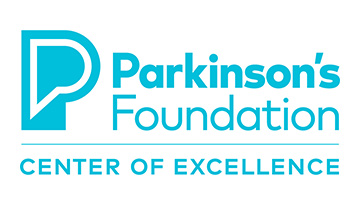Overview
Common perceptions about dementia and its effects on patients and their families are often negative. And too often, people’s actual experiences are rarely talked about — let alone understood. This disease — and those touched by it — needs more visibility and understanding.
Dementia and Personhood: Facts and Myths is a public communication project that dives into the stigma surrounding dementia. It draws on multiple perspectives from the humanities and healthcare to share where our understanding of dementia comes from and how those understandings match real-life patient experiences. We want to give a voice to people living with dementia and their families. We encourage you to watch the video about a patient’s story at the top of the page.
Understanding Dementia’s Real Impact
The Dementia and Personhood: Facts and Myths project combines efforts of investigators from:
- Cleveland Clinic.
- Case Western Reserve University.
- Drexel University.
- The MetroHealth System.
This project seeks to help the public better understand the stigma surrounding dementia — and how it affects patients and their families. Popular culture tells us many things about dementia, usually in a negative light. And we rarely hear the real voices of people who face dementia daily.
This project draws on multiple perspectives from the humanities, healthcare, and patients and families themselves to challenge the stigma surrounding dementia. By elevating the voices of those touched by dementia, we hope the Dementia and Personhood project will ignite open conversation about the disease. We want to help people increase their understanding of dementia and reduce the fear and stigma surrounding it.
The Ohio Humanities Council funded the project. It has additional support from the Cleveland Clinic Center for Neurological Restoration, a designated Parkinson Disease Center of Excellence and Huntington Disease Center of Excellence.

Contact Information:
Paul J. Ford
fordp@ccf.org
Funding Source: Ohio Humanities Council
Members & Collaborations
Our team consists of recognized scholars in the humanities, neuropsychology, bioethics and neuroethics:

Cynthia S. Kubu, PhD, Professor of Neurology, Cleveland Clinic Lerner College of Medicine of Case Western Reserve University, is the principal investigator. Dr. Kubu, a board-certified clinical neuropsychologist, has an emerging international reputation in neuroethics — particularly in the area of personality, neurodegenerative disorders, and neuromodulation. She has successfully led other large funded projects that help identify best clinical neuroethics practices and guide conceptual philosophical work.

Erin Gentry Lamb, PhD, Carl F. Asseff, MD, MBA, JD, Designated Professor in Medical Humanities, Associate Professor of Bioethics, and Faculty Lead of the Humanities Pathway in the Case Western Reserve University School of Medicine. Dr. Lamb helped found the North American Network in Aging Studies (NANAS). She is doing ongoing research on The Meanings of Dementia: Interpreting Cultural Narratives of Aging Societies, a study funded by the National Endowment for the Humanities.

Mark Aulisio, PhD, Susan E. Watson Professor and Chair of the Department of Bioethics at Case Western Reserve University and Director of the Center for Biomedical Ethics of the MetroHealth System. In 2009, the American Society for Bioethics and Humanities (ASBH) gave him its Distinguished Service Award for his leadership in training ethics consultants. With doctoral training in philosophy, Dr. Aulisio also has extensive international bioethics experience. He most recently participated in an 11 university, multinational effort of The Darwin Centre Trust’s Darwin International Institute for the Study of Compassion.
Paul Ford, PhD, Director of the Cleveland Clinic Neuroethics Program, Associate Professor, Cleveland Clinic Lerner College of Medicine of Case Western Reserve University. Dr. Ford, a doctoral-trained philosopher and clinical bioethicist, is a successfully funded researcher and has published widely on a variety of practical ethics topics, particularly those surrounding implanted neurological devices and innovative neurosurgeries.
Eileen Anderson, EdD, Anne Templeton Zimmerman, MD Professor of Bioethics, Director of Educational Programs, Bioethics & Medical Humanities, Director of Medicine, Society & Culture, Adjunct Associate Professor of Psychiatry, School of Medicine, Case Western Reserve University. Dr. Anderson is a medical and psychological anthropologist. She is the founding director of the Medicine, Society and Culture (MSC) Master’s Degree track in Bioethics and Medical Humanities.

Jesse Ballenger, PhD, Clinical Professor, Health Administration Department, Drexel University, is a historian of medicine who teaches bioethics and health humanities in the Department of Health Administration at Drexel. He is co-editor of two interdisciplinary books on dementia, and author of Self, Senility and Alzheimer’s Disease in Modern America (Johns Hopkins University Press, 2006). He is currently working on a book titled Dementia – A Critical History, which will explore the broad human experience with this condition from antiquity to the present.
Events
Past Events
June 27, 2023 – Dementia and Personhood: Facts and Myths
Where do negative perceptions about dementia and its impact on patients and families come from? This virtual event explored how these perceptions come about, and if they line up with the real-life experiences of people living with dementia and their family members. Experts from the humanities and healthcare provided brief medical, cultural, historical and ethical perspectives on factors that shape our understanding of dementia. Then, people with dementia and their loved ones were given the opportunity to share and learn from each other’s experiences in small group discussions.
Resources
Our resources are based on common sources of information and insight from stakeholders, particularly patients and families impacted by dementia. These can help guide your understanding of the stigma of dementia and how it impacts the patients and families living with the disease as well as help facilitate public discussions.
Video Playlist
Our video series features presentations by our research team, who represent the disciplines of neuroethics, the medical humanities and philosophy. The presentations address the stigma of dementia, how it is influenced by popular culture and its effects on those touched by the disease.
- Dementia and Personhood: Facts and Myths — Introduction (Cynthia Kubu, PhD).
- What Is Dementia? (Cynthia Kubu, PhD).
- American Media and Cultural Representations of Dementia (Erin Gentry Lamb, PhD).
- You Are NOT Alone: What a Critical Historical Perspective Means for People With Dementia (Jesse Ballenger, PhD).
- One Size Does Not Fit All: Culture and Dementia (Eileen Anderson, PhD).
- Clinical Ethics Balancing: Dementias Counter Intuitive Challenges (Paul Ford, PhD).
- Destigmatizing Dementia Through Involvement in Research (Lauren Sankary, JD).
- Philosophical Questions About Personal Identity and Dementia: Grandma Aulisio’s Story (Dr. Ausilio).
- Dementia and Personhood: Facts and Myths — Conclusion (Cynthia Kubu, PhD).
- Dementia and Personhood: Facts and Myths — Virtual Event on June 27, 2023.
Other Resources
- Alzheimer’s Association
- Dementia Action Alliance
- Dementia Alliance International
- Dementia Friendly America
- Huntington’s Disease Society of America
- Neuroethics Program
- Parkinson’s Foundation
- Reimagining Dementia
About Ohio Humanities
Dementia and Personhood: Facts and Myths was funded by the Ohio Humanities Council. Learn more about Ohio Humanities.
